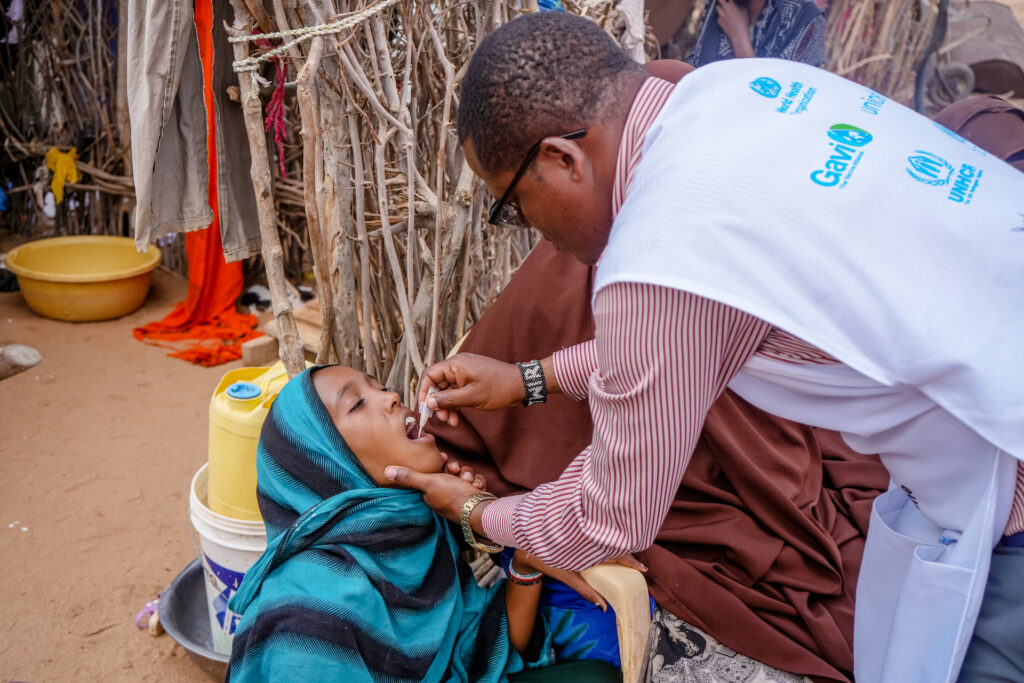Kenya is facing a growing public health crisis as the Ministry of Health confirmed a cholera outbreak that has claimed six lives and infected 97 people across several counties. As of April 6, 2025, the highly contagious and potentially fatal disease has spread across Migori, Kisumu, and Nairobi, prompting swift action from national and local health authorities.

Cholera is caused by the Vibrio cholerae bacterium, which is typically transmitted through the consumption of contaminated water or food. The disease is characterized by a sudden onset of severe watery diarrhea, vomiting, muscle cramps, and rapid dehydration. If not treated promptly, cholera can be fatal within hours of infection.
In Migori County, Kenya, 53 cases have been reported along with one death. Affected areas include Suna East, Suna West, Kuria East, and Kuria West. Most patients have already recovered, though two individuals remain hospitalized under observation.
Kisumu County has recorded 32 cases and four deaths. The outbreak has been concentrated in the Nyando and Muhoroni sub-counties. Nairobi, Kenya’s capital, has reported 12 cases and one fatality. The disease has spread across several sub-counties including Kasarani, Embakasi East, Embakasi Central, Roysambu, Kibra, and Dagoretti South.
In response to the outbreak, the Ministry of Health, in collaboration with county governments, has initiated a comprehensive set of emergency measures to contain the spread of the disease and prevent further loss of life. National and county-level rapid response teams have been activated to conduct active case surveillance and contact tracing. The teams are working to quickly identify new infections and isolate patients to limit community transmission.
Healthcare workers across the affected regions are receiving specialized training to improve cholera case management. These training sessions cover surveillance protocols, water sanitation, hygiene practices, and strategic communication aimed at public education and awareness.
Community outreach is being amplified through risk communication efforts. The Ministry is partnering with local health promoters, administrative officers, and media outlets to distribute educational materials, including visual aids and videos, that inform the public about cholera prevention and early signs of infection.
Efforts to address the source of infection are also underway. Water hygiene and sanitation interventions have been intensified. The Ministry is promoting household water treatment, encouraging safe food handling, and addressing contamination risks uncovered in preliminary investigations, which found untreated water to be a significant transmission factor.
Testing of suspected cases is ongoing, and treatment is being provided to all confirmed patients. Prophylactic care is being administered to those who may have had direct contact with infected individuals to prevent further spread. Health facilities are stocked with Oral Rehydration Solutions (ORS) and other essential medical supplies to support the emergency response.
The Ministry of Health is urging the public to take precautionary measures to protect themselves and their communities. Kenyans are advised to practice good personal hygiene by regularly washing hands with soap and clean water, especially after using the toilet and before handling food. Handwashing stations equipped with clean water and soap or hand sanitizers are being set up in public spaces.
Residents are being reminded to drink only treated or boiled water and to avoid consuming untreated water from rivers, wells, or other potentially contaminated sources. Water should be stored in clean, covered containers, and proper sanitation should be maintained at home and in public areas to prevent contamination.
Safe food preparation is also critical. Individuals should wash hands and clean surfaces before cooking, use clean water for washing produce, and cook food thoroughly. Leftovers must be reheated adequately and stored properly to prevent bacterial growth.
The Ministry emphasized the importance of early health-seeking behavior. At the first signs of diarrhea, individuals are encouraged to begin taking Oral Rehydration Solution immediately and visit the nearest health facility for treatment. The Ministry strongly discourages the use of self-medication and traditional remedies, as these could worsen symptoms or delay recovery.
As Kenya responds to this public health emergency, the Ministry of Health has called on all citizens to remain vigilant, follow health guidelines, and report any suspected cases promptly. Containing this outbreak will require national solidarity, community cooperation, and timely medical intervention to prevent further loss of life.



